Filter by
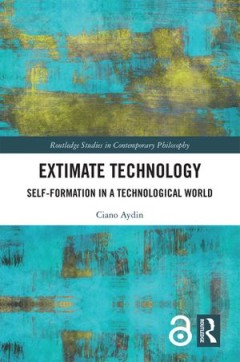
Extimate Technology
This book investigates how we should form ourselves in a world saturated with technologies that are profoundly intruding in the very fabric of our selfhood. New and emerging technologies, such as smart technological environments, imaging technologies and smart drugs, are increasingly shaping who and what we are and influencing who we ought to be. How should we adequately understand, evalu…
- Edition
- -
- ISBN/ISSN
- 9781000357967
- Collation
- -
- Series Title
- -
- Call Number
- -
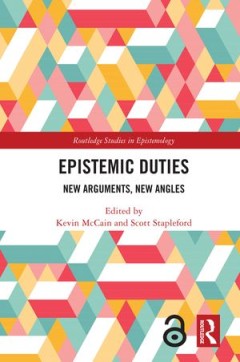
Epistemic Duties
There are arguably moral, legal, and prudential constraints on behavior. But are there epistemic constraints on belief? Are there any requirements arising from intellectual considerations alone? This volume includes original essays written by top epistemologists that address this and closely related questions from a variety of new, sometimes unexpected, angles. It features a wide variety of pos…
- Edition
- Edisi 1
- ISBN/ISSN
- 9780429641794
- Collation
- -
- Series Title
- -
- Call Number
- -
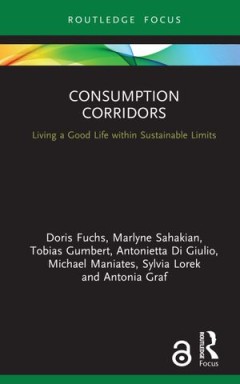
Consumption Corridors
Consumption Corridors: Living a Good Life within Sustainable Limits explores how to enhance peoples’ chances to live a good life in a world of ecological and social limits. Rejecting familiar recitations of problems of ecological decline and planetary boundaries, this compact book instead offers a spirited explication of what everyone desires: a good life. Fundamental concepts of the good …
- Edition
- -
- ISBN/ISSN
- 9781000389463
- Collation
- -
- Series Title
- -
- Call Number
- -
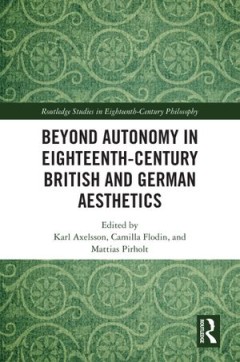
Beyond Autonomy in Eighteenth-Century British and German Aesthetics
This volume re-examines traditional interpretations of the rise of modern aesthetics in eighteenth-century Britain and Germany. It provides a new account that connects aesthetic experience with morality, science, and political society. In doing so, it challenges long-standing teleological narratives that emphasize disinterestedness and the separation of aesthetics from moral, cognitive, and pol…
- Edition
- Edisi 1
- ISBN/ISSN
- 9781000077247
- Collation
- -
- Series Title
- -
- Call Number
- -
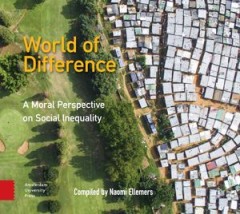
World of Difference
Public debates tend to see social inequality as resulting from individual decisions people make, for instance with respect to their education or lifestyle. Solutions are often sought in supporting individuals to make better choices. This neglects the importance of social groups and communities in determining individual outcomes. A moral perspective on social inequality questions the fairness of…
- Edition
- -
- ISBN/ISSN
- 9789048534548
- Collation
- -
- Series Title
- -
- Call Number
- -
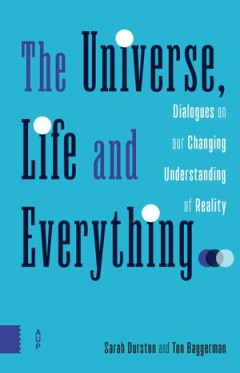
The Universe, Life and Everything
The way we understand the world we live in is changing. Our traditional understanding is being challenged by developments in physics, including quantum mechanics, and our inability to explain certain complex phenomena such as consciousness. In this book, scholars from a variety of backgrounds discuss how our understanding of our world is expanding to include such phenomena.
- Edition
- -
- ISBN/ISSN
- 9789048539055
- Collation
- -
- Series Title
- -
- Call Number
- -
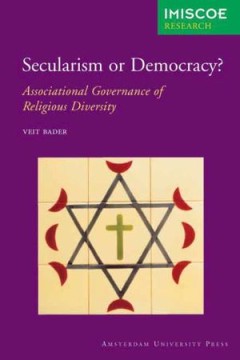
Secularism or Democracy?
Established institutions and policies of dealing with religious diversity in liberal democratic states are increasingly under pressure. Practical politics and political theory is caught in a trap between a fully secularized state (strict separation of state and politics from completely privatized religions based on an idealized version of American denominationalism or French republicanism) and …
- Edition
- -
- ISBN/ISSN
- 9789053569993
- Collation
- -
- Series Title
- -
- Call Number
- -
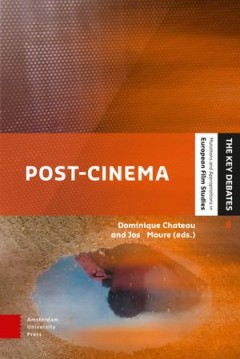
Post-Cinema
Post-cinema designates a new way of making films. It is time to ask whether this novelty is complete or relative and to evaluate to what extent it represents a unitary or diversified current. The book proposes to integrate the post-cinema question within the post-art question in order to study the new ways of making filmic images. The issue will be considered at three levels: the impression of …
- Edition
- -
- ISBN/ISSN
- 9789048551941
- Collation
- -
- Series Title
- -
- Call Number
- -
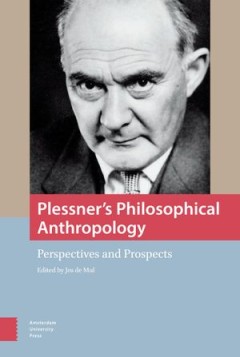
Plessner's Philosophical Anthropology. Perspectives and Prospects
Helmuth Plessner (1892-1985) was one of the founders of philosophical anthropology, and his book The Stages of the Organic and Man, first published in 1928, has inspired generations of philosophers, biologists, social scientists, and humanities scholars. This volume offers the first substantial introduction to Plessner’s philosophical anthropology in English, not only setting it in context wi…
- Edition
- -
- ISBN/ISSN
- 9789089646347
- Collation
- -
- Series Title
- -
- Call Number
- -
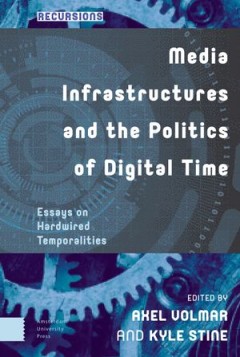
Media Infrastructures and the Politics of Digital Time
Digital media everyday inscribe new patterns of time, promising instant communication, synchronous collaboration, intricate time management, and profound new advantages in speed. The essays in this volume reconsider these outward interfaces of convenience by calling attention to their supporting infrastructures, the networks of digital time that exert pressures of conformity and standardization…
- Edition
- -
- ISBN/ISSN
- 9789048550753
- Collation
- -
- Series Title
- -
- Call Number
- -
 Computer Science, Information & General Works
Computer Science, Information & General Works  Philosophy & Psychology
Philosophy & Psychology  Religion
Religion  Social Sciences
Social Sciences  Language
Language  Pure Science
Pure Science  Applied Sciences
Applied Sciences  Art & Recreation
Art & Recreation  Literature
Literature  History & Geography
History & Geography